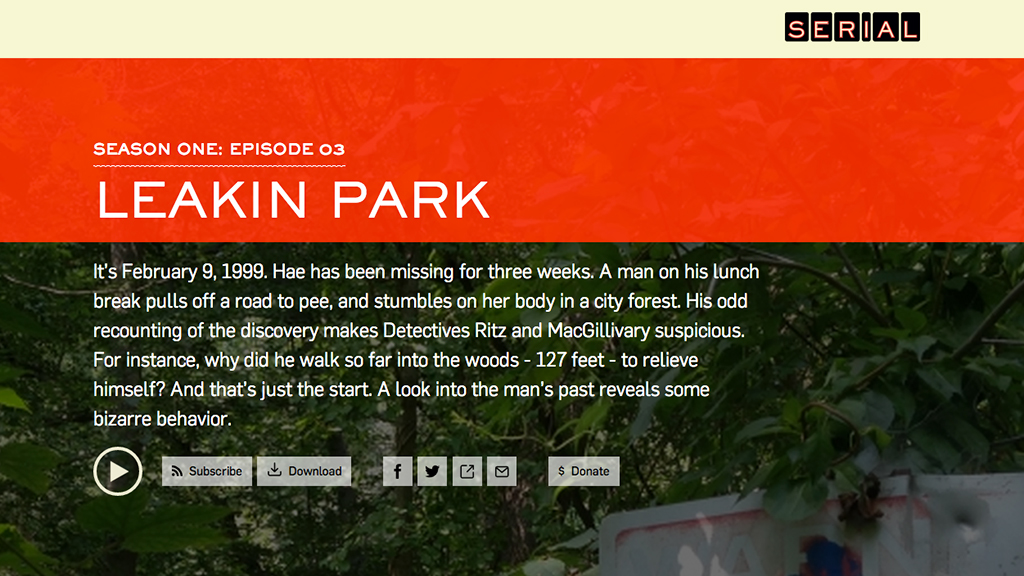Finer Things: Serial
 Screenshot
ScreenshotI wish I were Sarah Koenig. Or, more precisely, I wish I could engage with my audience at the same level she does. The first season of her podcast, Serial, has been downloaded and streamed more than 5 million times in the last three months, and it’s revolutionizing a genre that’s spent a decade fading into obscurity. She found a story, followed it on a ludicrously small budget, and made people want to experience journalism again.
In the first episode, listeners are introduced to 31-year-old Adnan Syed. He has been in jail since he was 17 for the murder of his high school ex-girlfriend, Hae Min Lee. Over the next 11 hours or so, Koenig gives an in-depth review of the case. That’s it. There’s no crazy First 48 police chases or drug busts — just the voices of Koenig and those involved in the case. The listener loyalty elicited from (for the most part) solid and exciting investigative journalism makes me highly optimistic, to say the least.
I admit to being one of those who primarily gets their news from questionable sources. I admit to being part of the screaming throng of Tweeters reinventing how people get news, but it’s an unbelievably large relief to see candid, honest journalism being popularised in such a way. I long for the time when everyday conversation returns to genuine issues; Serial puts the media-consuming world on that track.
This podcast has gone viral in 2015. I never thought I’d hear those words together in that order. Ever. Serial shows the potential for the reinvigoration of investigative journalism as a whole. In short, if you haven’t heard it, set aside some time and listen to the first episode. I promise you’ll want to hear the rest.
Finer Things is a semi-regular feature in which Gateway pop culture pundits point to a particularly relevant or pretentious example of art celebrating it for all of its subjective merit.




